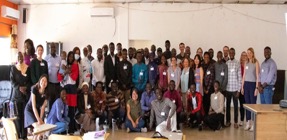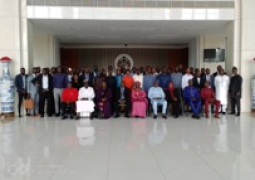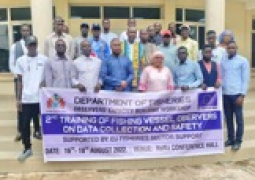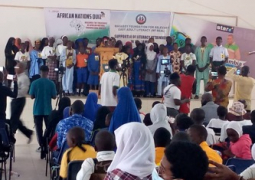
The training brought together journalism students, experienced editors, journalists, climate change experts, and ocean and fisheries experts in The Gambia and West Africa.
During the deliberations by panelists, participants were not onlyofferedinsightsonhow to cover ocean and climate change stories that are relevant to local and international audiences but also on how to look into the complex dynamics of reporting on China’s role in the region.
Issues such as China’s reporting in West Africa and how tocoverChina’simpactontheWest African region fairly and accurately were also delved into by Solomon Elusoji, a Digital Content Executive for Carbon Brief which is a UK-based website covering the latest developments in climate science, climate policy and energy policy.
He said China is Africa's largest trading partner and has invested heavily in African infrastructure including energy projects and mining.
However, he said China has also been criticised for its environmental record and its impact on African countries. “There are also concerns about the impact of China's Belt and Road Initiative on African countries, including its potential to increase carbon emissions and deforestation.
Dr. Sam Gall, the Chief Executive Officer (CEO) of China Dialogue explained the importance of the climate and its challenges. He said the importance of the dialogue through high-quality journalism on environmental and climate change issues is a step ahead in achieving the global concern of climate change.
He added that environmental journalismiscentraltoexposingwrongdoings, exploring alternatives and formulating better solutions and policies for building movements for positive environmental change. “It needssomethingthatdefence,support, resources, training and education in ensuring best practices."
The China Dialogue Trust is a fully independent, non-profit organisationfounded in 2006. It is dedicated to promoting international cooperation and constructive dialogue through highjournalism, environmental and climate change issues.




